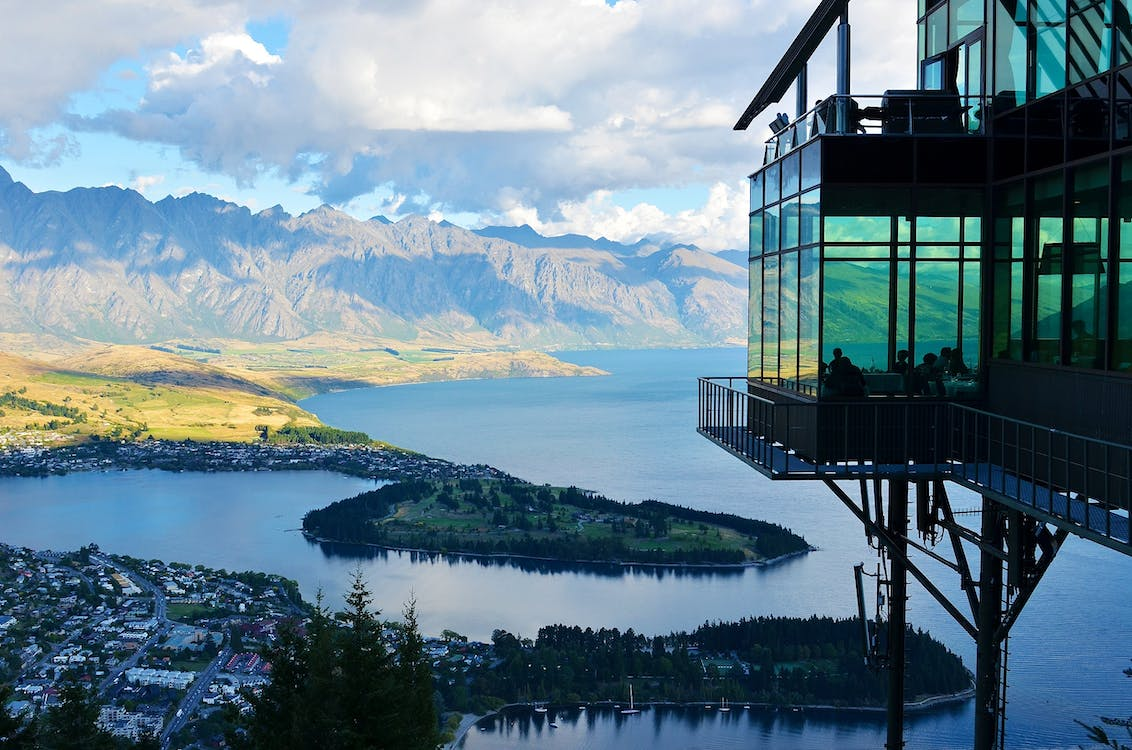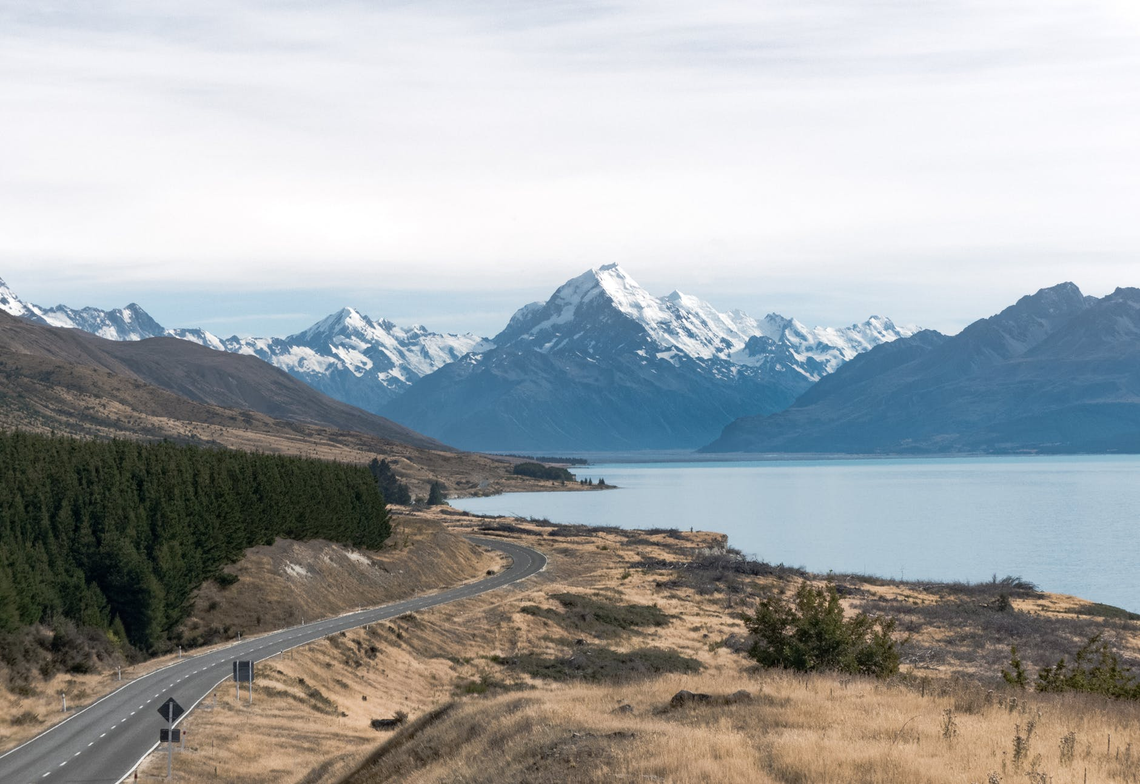
Apply to a foreign university with confidence
- Properly fulfilled documents
- Perfect motivation letter
- Support from a personal mentor
- Offers from several universities
Article score: 5 out of 5 (2 reviews)
Full information about education in New Zealand: universities, programs, admission requirements, fees
Free consultation




Under New Zealand's law, all children between the ages of 6 to 16 years old are required to attend school.
Secondary education consists of several stages:
All secondary schools fall into three types:
The academic year begins in January and consists of quarters with two-week vacations between them. In addition, there are longer summer holidays that last for two months.
The curriculum consists of eight compulsory subjects (English, visual arts, physical education, foreign languages, mathematics and statistics, social and natural sciences) and electives, which children can choose on their own.
At the end of their studies, students take the NCEA exam (the National Certificate of Educational Achievement), which allows them to enroll in polytechnic institutes and universities.
Education in New Zealand has been popular among international students for many years. All eight New Zealand universities are in the top 3% of the world's best universities, which indicates the high quality and popularity of local education. In addition, it is cheaper to study here than in the USA, Canada or England, and, unlike many European countries, you do not need to learn complicated foreign languages - the official language of New Zealand is English.
| Program | Min. age | Duration | Min. cost | Avg. cost | Min. Language level | Exams |
|---|---|---|---|---|---|---|
| Summer camp | 6+ | 1-10 weeks | 649 USD/week | 886 USD/week | A1 | - |
| Language schools | 6+ | 1-12 weeks | 337 USD/week | 679 USD/week | A1 | - |
| Secondary education | 11+ | 7 years | Free | 13,578 USD/year | B1 | - |
| Foundation | 16+ | 6-18 months | 10,626 USD/year | 14,759 USD/year | B2 | IELTS/TOEFL |
| College | 16+ | 1-2 years | 5,904 USD/year | 10,036 USD/year | B2 | IELTS/TOEFL |
| Bachelor’s | 18+ | 3-4 years | 10,744 USD/year | 15,940 USD/year | B2 | IELTS/TOEFL |
| Master's | 21+ | 1-2 years | 11,453 USD/year | 18,596 USD/year | C1 | IELTS/TOEFL |
| MBA | 21+ | 1 year | 21,755 USD/year | 27,747 USD/year | C1 | IELTS/TOEFL |
| Doctoral | 22+ | 3-4 years | 3,837 USD/year | 4,575 USD/year | C1 | IELTS/TOEFL |
Postsecondary education is divided into levels from 1 to 10. Each level corresponds to certain academic degrees or programs, has a certain list of skills and qualifications studied, and also gives the opportunity to apply for certain vacancies. More information about each level can be found on the official website of NZQA (New Zealand Qualification Authority).
| Degree/Program | Level | Duration | Number of credits |
|---|---|---|---|
| Certificates | 1-4 | 3-24 months. | 40-240 |
| Diploma | 5-6 | 1-2 years | 120-240 |
| Bachelor's Degree | 7 | 3-4 years | 360-480 |
| Graduate Diplomas | 7 | 6-12 months | 60-120 |
| Postgraduate Diplomas, Bachelor's Degree with honors | 8 | 6-12 months | 60-120 |
| Master's Degree | 9 | 1-2 years | 120-240 |
| Doctoral Degree | 10 | 3-4 years | 360-480 |
For International students, special training programs similar to the British Foundation were developed. Typically, such courses last from 6 to 18 months. The curriculum consists of classes in English and subjects in chosen by the student fields. Many universities have their own preparatory programs, which offer their graduates various advantages: for example, transfer of credits or even guaranteed admission. Since classes are all in English, students entering the program must have a language certificate that proves English proficiency of at least B2 level. Applicants who do not meet this criterion can take additional pre-foundation courses, which usually last for about 6 extra months and are aimed exclusively at learning the language.
Vocational education is supervised by Industry Training Organizations (ITOs). They establish qualification levels and the requirements for obtaining them. Currently, there are about 30 such organizations. In connection with the planned education reform, the New Zealand government announced its intention to replace the existing ITOs with several advisory boards that will decide on professional qualifications and selection criteria for a specific industry.
As of today, in order to get a professional education in New Zealand students have the following options:
Most undergraduate programs last three years, less often four. Bachelor with honours degree is awarded after another year of study, during which students are engaged in research work. In exceptional cases, for example, to graduate from a medical university, students will need 6 years.
The academic year begins in February and ends in November of the following year. The program consists of practical courses and lectures. A bachelor's degree gives a student the opportunity to enroll in a master's or continuing education programs.
Students who want to receive more advanced knowledge and are interested in research activities in their field usually choose to enter the second stage of higher education.
In New Zealand, there are several types of master’s programs:
A Master’s course takes an average of two years. The first year includes theoretical and practical classes, and the second is tied to research.
To enter the academic master's programs, you need to complete a bachelor's degree (the field of study may or may not matter). For a professional master's degree, work experience in the relevant field is usually required.
PhD in New Zealand takes three to four years and allows you to get a doctoral degree. Before officially submitting documents to the doctoral program, students must contact their future supervisors to approve the research proposal. After this, an interview is scheduled, during which the student has the opportunity to discuss his work with the academic council of the university.
During the training, students are engaged in research activities in order to write a thesis. At the end of the program, students defend their works in front of the examination board and pass an oral exam assessing the knowledge acquired during the course of study.
The academic ranking system in New Zealand consists of five levels:
New Zealand’s law allows student visa holders to work part-time (up to 20 hours a week) during their studies and full-time (up to 40 hours a week) during their summer and winter breaks. Master's by research and doctoral students have the right to work without restrictions.
The minimum rate set by the state is 10 USD/hour, although the actual salary is usually higher than the minimum. It is also worth considering that in New Zealand the tax of 10.5% is introduced for wages less than 8,265 USD[3].
Some universities have their own employment centers and help students find jobs.
Before applying for a job, students must obtain a work permit and an IRD number. You can apply for it online.
The most common types of part-time jobs for international students in New Zealand are a sales consultant, seasonal worker (eg, gardener), supermarket assistant, waiter, kitchen assistant, bartender, call center employee[3].
After graduating, one can legally remain in the country in order to search for employment. To do this, first of all, it is necessary to apply for a Post-study work visa, which is issued for a period of 1, 2 or 3 years, depending on the level of education and place of study[4]. The minimum requirement is level 4 qualifications. The NZQA duration of the program must be at least 30 weeks for level 7 and at least 60 weeks for levels 4-6).
It is important to apply at least 3 months prior to the visa expiration date. The applicant must have at least 2,479 USD of funds. Registration fee — 986 USD[5]. The review period is about 50 days.
A post-study work visa can only be renewed if a new qualification of a higher level is obtained in an educational institution of New Zealand. Another way is to obtain a residence permit and citizenship. It is worth noting that the chances of employment and immigration are higher if the profession is on the skill shortage list.
According to statistics, only 36% of foreign students remain in New Zealand 10 years after graduation. Having received qualifications, most go to seek work in other countries. One of the reasons, perhaps, is that foreigners in New Zealand receive on average 5,904 USD/year less than local students with the same qualifications (excluding medicine)[6].
Master’s graduates have the highest rate of employment (67%) during the first year after graduation. Then come the owners of PhD or other postgraduate qualifications — 44%, specialists with diplomas or certificates of 5-7 levels — 41%, and bachelor’s degree holders — only 32%. Graduates of professional institutions with level 1-4 certificates in 95% of cases continue to study. The statistics given can be somewhat underestimated, since it does not take into account those who combine work and study, as well as some other categories[6].
Five years after the end of the program, the average salary of foreign graduates with a PhD degree is a record 45,339 USD/year. For qualifications of the remaining levels, the earnings vary from 19,659 USD/year (levels 1-4) to 32,765 USD/year for postgraduate. However, it is worth considering that these are only average wages. The specific figures are largely dependent on the specialty. Medical specialists (qualifications of 5-7 levels) have the highest salaries that are up to 44,276 USD/year, other specialties on average can count on a salary of about 20,662 USD/year. The least paid specialties are in creative fields[6].
60+ countries
we work with
$1,000,000 saved
by students through scholarships
6,400 offers
our students got